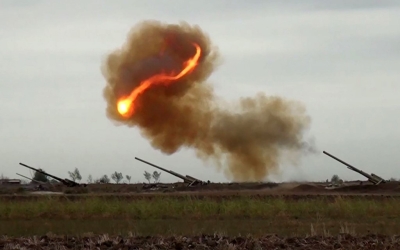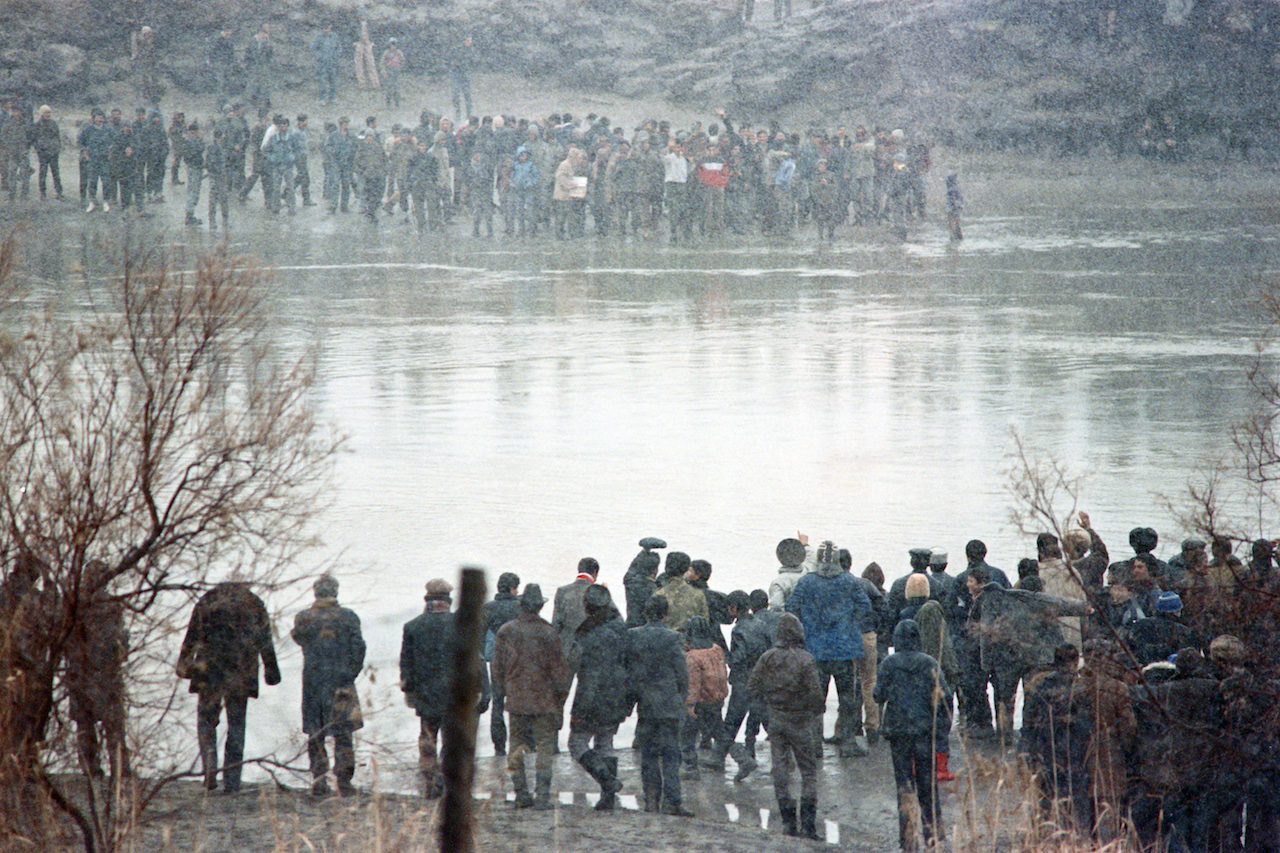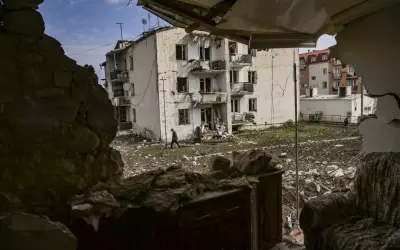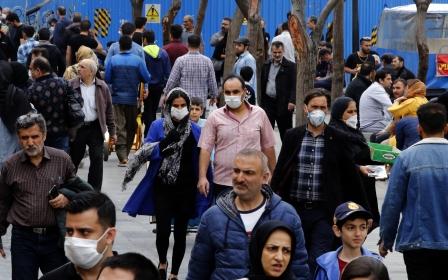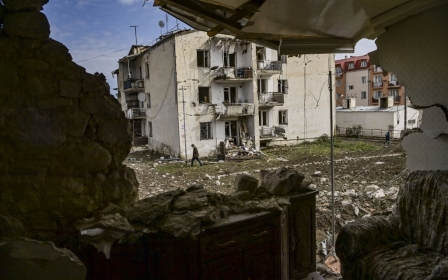Azerbaijan-Armenia conflict raises spectre of 'pan-Turkism' in Iran
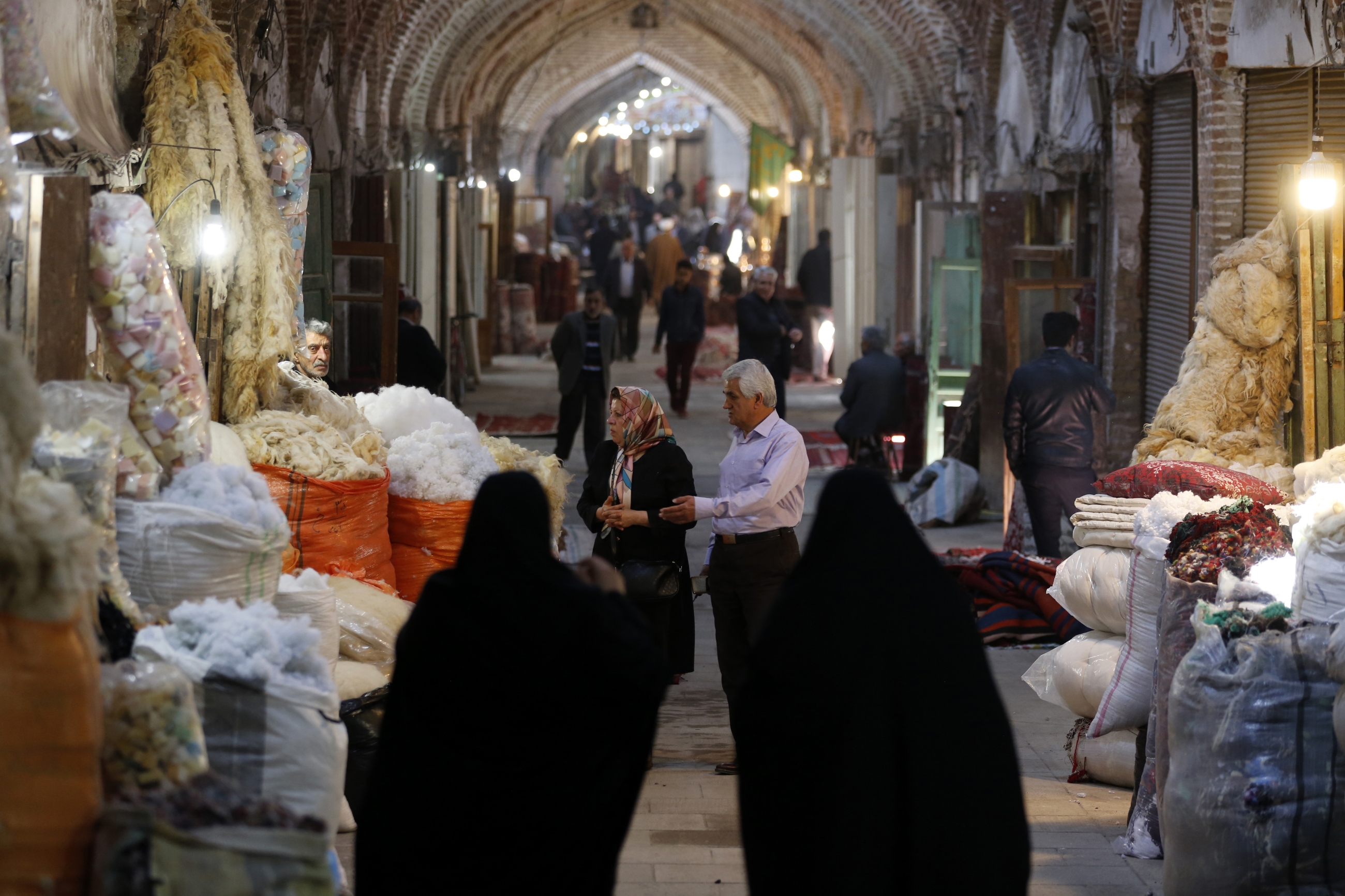
Fears have grown of unrest among Iran's Azeri minority after the government appeared to shift to a pro-Azerbaijan stance on the Nagorno-Karabakh conflict.
Since the early days of fighting between Armenia and Azerbaijan, Iran's government has attempted to portray itself a neutral mediator - a role that it has assumed in past rounds of conflict over the disputed region on the country's northern border.
Saeed Khatibzade, the spokesperson for Iran’s foreign ministry, has spoken of the necessity of an “immediate ceasefire” before the beginning of new talks between Armenia and Azerbaijan.
“The policy of Iran regarding this dispute hasn’t changed, and we are willing to help to facilitate the dialogue, and we believe that the military solution isn't a lasting solution for resolving [such] issues," he said.
Furthermore, Ali Rabie, the spokesperson for the government of Iran, announced that Tehran along with Moscow and Ankara could "help the two neighbouring countries in implementing the UN resolutions to resolve their differences through peaceful ways.”
However, since the fighting began there have been multiple street demonstrations by Azeris in Iran calling for support for their sibling state.
The Azeri community in Iran is the second largest ethnic group in the country, mostly centred around the northwestern provinces that border Azerbaijan.
On 1 October, Azeris in Tabriz - the capital city of East Azerbaijan province - took to the streets to declare their support for the “territorial integrity” of the Republic of Azerbaijan.
One day later, the representatives of Iran's Supreme Leader Ali Khamenei to the four Azeri-majority provinces of Ardabil, Zanjan, Eastern Azerbaijan, and Western Azerbaijan, held a meeting, discussing the Nagorno-Karabakh crisis.
Shortly after they issued a joint statement, saying there was "no doubt about Karabakh belonging to Azerbaijan and the necessity of its return to Azerbaijan.
"The people of Azerbaijan know best that the Islamic Republic provided the highest assistance and support to Azerbaijan during the occupation of Nagorno-Karabakh and defended the territorial integrity of Azerbaijan in all international circles," it read, continuing, "had it not been for the Islamic Republic at the beginning of the occupation of Nagorno-Karabakh, the occupation would certainly have extended to Baku."
They also praised the “recent victories” of the Azerbaijan army.
'Danger' of pan-Turkism
Iran's policy of neutrality dates back three decades to the beginning of the Nagorno-Karabakh conflict in the early 90s.
At the time, Iran’s President Akbar Hashemi Rafsanjani managed to persuade the two sides to reach a ceasefire deal and their leaders to sit at the negotiation table. In the middle of the crisis, Rafsanjani visited Baku, where he was asked to enter the war along with Azerbaijan against Armenia. He turned down the request, preferring to continue his mediation attempts.
The 2 October statement, however, alongside the pro-Azerbaijan demonstrations, have provoked alarm among some Iranians, who fear that displays of support for Azerbaijan could risk stirring up ethnic tensions and even separatism.
Hamshahri, a reformist newspaper, said there was a risk of "provocation of ethnic sentiments in some parts of the country.”
The Shargh newspaper also expressed its concerns over the consequence of this statement and the possible “abuse” of it by radical ethnic and separatist groups, while the Entekhab news site slammed the statements and the four representatives behind it for violating the “neutral” policy of Iran regarding the Karabakh crisis and the potential damage it could cause to Iran's diplomatic relations.
The Azeri protest in Tabriz have also fuelled concerns about the rise of "pan-Turkism," a political ideology that advocates union between the "Turkic" states such as Turkey, Azerbaijan, Kazakhstan and Turkmenistan.
Masoud Mardomi, an Azeri living in West Azerbaijan Province, told Middle East Eye that the majority of Azeris were busy thinking about how to make ends meet in the middle of an economic crisis rather than the Nagorno-Karabakh conflict.
"There are, however, about 20 percent that are affected by the propaganda of Turkish and Azerbaijani channels and would like Tehran to take Baku’s side," he added.
"And I think the representatives of Iran’s leader made a mistake by releasing that statement as it did strengthen this minority.”
He said that, overall, most Azeris in Iran were Iranian patriots and had no interest in "pan-Turkist" politics.
“I have no doubt about what I’m saying that if the majority of Azeris cared about the current conflict, they would have passed the border and taken over [Armenia's capital] Yerevan," he explained.
"You saw how we fought for our country in the eight-year war Iraq imposed on Iran.”
Armenian concerns
Meanwhile, Iran's Armenian community - whose numbers are thought to range between 70,000 and 200,000 people - have generally had a muted reaction to the conflict, though some still desire to see their government putting forward a stronger defence of Artsakh, the ethnically Armenian administration that controls Nagorno-Karabakh.
'Azerbaijan’s growing power will enhance Pan-Turkism inside Iran with the sole goal of disintegration, and we Armenians are fully against this'
- Garegin Fataei, lawyer
Garegin Fataei, an Iranian-Armenian lawyer, said the government had been forced to take a neutral position in order to balance the sentiment of a large number of Azeris in the country with the Islamic Republic's warm relationships with Armenia.
"But the Armenians of Iran don’t like to see their country (Iran) to be the victim of Baku’s policies, because Azerbaijan’s growing power will enhance Pan-Turkism inside Iran with the sole goal of disintegration, and we Armenians are fully against this," he added.
He argued that, much like Iranian Azeris, Iran's Armenians saw themselves first and foremost as Iranian.
“We however are upset to see Iran asking Armenia to withdraw its forces from Karabakh - we know the Iranian government has strong reasons for supporting Armenians there.”
Integrity of Azerbaijan
Following the controversy over the Azeri leaders' statement, Ali Akbar Velayati - a foreign policy advisor to the supreme leader - told the influential conservative newspaper Kayhan "we are completely worried about the fate of Azerbaijan, and we believe that territorial integrity of it must be preserved and its occupied regions must be evacuated [by Armenian forces].”
Iran’s government took the same position, urging Armenia to withdraw its forces from the “occupied regions”.
A reliable and knowledgeable source told MEE on condition of anonymity that the Iranian Azeri leaders had not acted "independently" and their statement was surely indicative of a change in attitude at the highest levels, as the four would never be "allowed to make such decisions without any coordination”.
The apparent move in favour of the Azerbaijani position marks a shift in Iranian policy, which has in the past been seen as more favourable to Armenia.
Another analyst - also speaking on condition of anonymity - suggested that Azerbaijan had been pressuring Iran by promoting pan-Turkism and raising the spectre of ethnic separatism in the country.
“They have strived to attract some people in Iran in order to pressure Tehran to change its policies. At the same time, in the high ranking levels in Tehran, they are active and lobbying," he said.
“However, many believe that Iran’s change of position in favour of Azerbaijan was rooted in Tehran’s belief that Azerbaijan wouldn't gain anything important in this war.”
Life worries
Beyond the geopolitical debate, the real-life impact of the conflict on neighbouring areas in Iran has been overlooked.
Since the conflict began, a considerable number of mortar shells have hit the border areas in the northwest of Iran.
Iran’s President Hassan Rouhani has warned Armenia and Azerbaijan to avoid inflicting any damage to border areas, but many of those affected feel their concerns are being ignored.
Masoud Khodapanah, who lives in the village of Qoli Beiglou close to the Iran-Azerbaijan border, told MEE Armenian and Azerbaijani shelling was making life hard.
"A few days ago, three rockets landed here - one of them hit a paddy field, destroying five-months of work by its owner. The other one hit very close to a house, causing its windows to be broken. The third one hit the village’s cemetery," he said.
“People are fleeing and leaving the village as they are worried about their life."
This article is available in French on Middle East Eye French edition.
Middle East Eye delivers independent and unrivalled coverage and analysis of the Middle East, North Africa and beyond. To learn more about republishing this content and the associated fees, please fill out this form. More about MEE can be found here.


